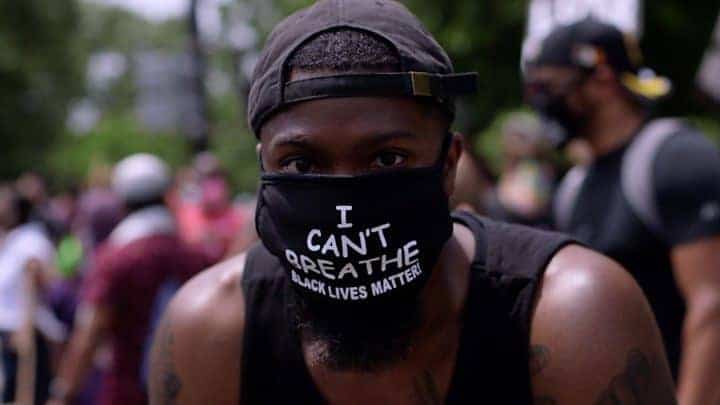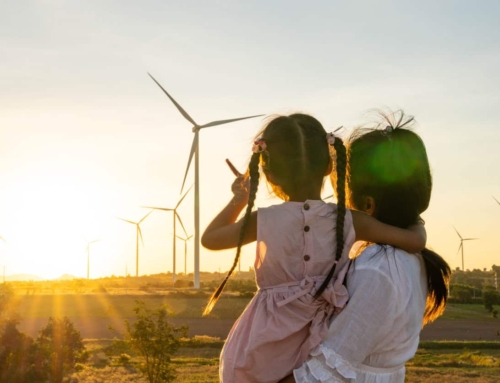Black Lives Matter! I can’t breathe. George Floyd. No justice/no peace. Defund the police. Protestors. Looters. Riots. Law and order. Activism is not terrorism.
Movements and causes rise and fall based on the language they use. Not only the current events, but the climate and environmental movements as well. Why?
Because the best language activates metaphors in the brain, persuades those in the middle, and creates a vision or story based on an appeal to universal values. Much like viral marketing, it helps the idea spread on its own. Words and language start this process.
This post is not to speak over black voices on the street nor prescribe the solution. There is an urgency and honesty to the words of the movement. The intent is simply to point out some things that help and others that harm. Some language is organic and rises on its own. Other language is developed specifically for a calculated purpose. It doesn’t all work. The trick is to repeat the good stuff and avoid the stuff that doesn’t work. While there are good examples, we can also fall into emphasizing the language and narratives of the opposition. When we do that, we lose.
Here are a few examples of powerful language to use and a few to avoid.
Consider the term (and organization) Black Lives Matter. This is a good example. The language is short and direct. It emphasizes the importance of the a universal value, a respect for life. Black lives. The stories it evokes are told by the names of people we have lost: George Floyd, Philando Castile, Eric Garner, Breonna Taylor, and thousands of others. It is one of being able to walk the street when Black and not fear being shot by police. But it is so much more. By basing the name and phrase on the value of a respect for life, it also applies to broader issues such economic inequity, mass incarceration and climate injustice. We know it is succeeding when the best phrase the opposition can develop is the weak… “all lives matter.” This phrase only underscores and lifts the term Black Lives Matter.
“I can’t breathe!” is another good example. There is nothing more fundamental to life than breathing. It is literally the definition of life. We imagine what it is like to lose our breath. We lose our breath when we suffer from COVID-19. We lose our breath when the air is so polluted we can’t breathe or have asthma. We lose our breath when we are oppressed by a militarized police force. The story it evokes is the universal panic in having our breath or lives stolen. Breathing stands for life against death. No one can oppose supporting the breath of life.
On the other hand, there is the recent campaign phrase activism is not terrorism. This is a really bad choice of words and should be avoided. It is an attempt to refute a right wing frame, that protestors are terrorists. Any time we try to refute a negative frame, that frame is entrenched in our brains. In this case we do not even hear the term not. All we hear is activism and terrorism. When repeated over and over, only a few people have to hear it before it becomes lodged in our public consciousness that activists are terrorists. The more we deny a negative frame the stronger it becomes. Reason and logic don’t help.
The first solution to this problem is to ask, “Am I responding to an opposition or a negative frame? Am I defending?” If you are, then the next step is to ignore that frame and pivot to a positive direct statement. For example, activists are seeking justice, or protestors are patriots. But be careful. Even the term protestor is a frame. Are we protestors or are we demonstrators? Perhaps we are protectors… protecting the lives of our fellow citizens regardless of the color of our skin, where we come from or how we worship?
The same pivot applies to language like “a riot is the language of the unheard.” This supports the premise that recent events are riots. They are not.
The same applies to the phrase “corporate looters.” It bolsters the idea that motivation for events is tied to looting.
A particularly problematic term is “defund the police.” While this is an important goal of the demonstrations, it may have been lost to the calculated opposition narrative “defend the police.” This changes the argument and spotlight from protecting black lives to now protecting the police. The opposition tactic is to blame the victim and promote your own victimhood. There will always be an opposition to your language. Yet your message is not effective if it doesn’t piss off a portion of those hearing it because otherwise it is too bland. But you are in trouble when you have to explain your message, or it provides no message platform to build to other related causes. In this case it is better to stick to specific language that gets the opportunity to defund police or reallocate police resources. For example, refer to “police brutality,” “police repression,” or “murder by police.” No one will defend murder by the police. Or perhaps try “reinvent policing.”
The most important thing with the language of change is to paint a vision of the future we want. One that is based on cross-racial solidarity, shared prosperity and racial justice, as well as effective government. Here’s an example from the Race-Class Narrative Action project.
Whatever our race, regardless of our background or zip code, we all want to move through our communities without fearing for our lives or our loved ones.
But time and again, we have witnessed the horrors committed against Black people by police in cities, and on back roads, in living rooms and on neighborhood streets, in the dark of night or the light of day. All the while, a handful of politicians shame and blame the very victims of this police brutality to distract us from their failures to ensure we have the care, security and support every one of us needs.
We are coming together to demand liberty and justice be for all and that our elected officials and public servants respect our rights, no matter our race, accent or zip code. Join us by <insert your specific call to action.>*
I hope this helps. This movement is rising. The words we choose make a difference. It’s not always easy. Think of them as a song that we all want to sing over and over together. Amplifying the right ones will create success.
Let me know if I can help you with a particular language issue. No justice. No peace.
*This paragraph was developed by the Race-Class Narrative Action project in conjunction with the work of ASO Communications. It is open source.
‘We are all connected. Savor the Earth!’™
Hobie,
L. Hobart Stocking
SkyWaterEarth.com
hobart@skywaterearth.com
651-357-0110
Facebook: @SkyWaterEarthConnected
Twitter: @SkyWaterEarth








Leave A Comment